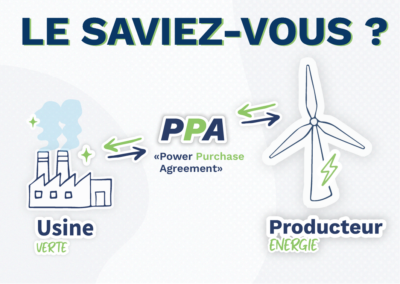
Is the regulatory energy audit mandatory?
Among the key measures to be implemented, regulatory energy audit holds particular importance. This tool allows to assess the energy performance of a company, identify energy saving opportunities, and comply with current regulations.
In this article, we will guide you through the various aspects of regulatory energy audit. Our goal is to provide you with the necessary information to make informed decisions and implement concrete actions to improve your energy performance and meet regulatory requirements.
I. What is a regulatory energy audit?
The regulatory energy audit is a systematic assessment process of the energy consumption of an industrial company, in accordance with current regulations. Its goal is to identify energy saving opportunities and to propose concrete measures to improve the company’s energy efficiency.
This audit is carried out by qualified experts, in compliance with legal and regulatory requirements. It includes a detailed analysis of the facilities, equipment, processes, and energy practices of the company, as well as the collection and analysis of relevant energy data.
In addition, the regulatory energy audit aims to **assess the potential use of renewable energy sources or more efficient technologies**. It allows **to identify the necessary investments** to improve energy efficiency and quantify potential energy savings.
It allows **to optimize production processes, improve profitability by reducing energy costs, and enhance competitiveness in the market**.
Furthermore, it contributes to reducing greenhouse gas emissions, energy transition, and achieving environmental objectives.
II. Energy audit regulations
Other regulations may also apply, such as the European Directive on Energy Efficiency (DEE), which requires Member States to implement energy audit measures for large companies, or the ISO 50001 standards on energy management.
The thresholds and criteria determining the obligation to carry out an energy audit vary depending on the specific regulations. For example, according to the LTECV law, companies with more than 250 employees or with an annual turnover exceeding 50 million euros, as well as those belonging to certain specific sectors, are required to conduct an energy audit every 4 years.
Decree No. 2015-1823 of December 30, 2015, concerning the codification of the regulatory part of the Energy Code, defines the thresholds beyond which a legal entity must conduct an energy audit.
The obligation to carry out a regulatory energy audit mainly concerns industrial sectors with high energy consumption. This includes manufacturing, chemical, agri-food, metallurgical industries, as well as the construction, transport, and logistics sectors.
III. The benefits of carrying out a regulatory energy audit
Regulatory energy audit represents a valuable opportunity to identify energy saving opportunities within your industrial company. By conducting a detailed analysis of your energy consumption, you will be able to identify areas where improvements can be made and savings can be achieved.
This may include identifying energy-intensive processes, energy losses, or inappropriate consumption behaviors. With this information, you can implement specific measures to optimize your energy consumption, reduce your operational costs, and increase your profitability.
Enhancing your energy performance can also strengthen your competitiveness in the market. Consumers and clients are increasingly sensitive to environmental issues and attach growing importance to companies that adopt sustainable practices.
By improving your energy performance, you can position yourself as a responsible company, attract new customers, and retain existing ones.
IV. The steps of a regulatory energy audit
Next, **a detailed analysis** is carried out to assess the energy performance of your company. This may include reviewing production systems, industrial processes, equipment, lighting, heating, air conditioning, etc. **The goal is to identify sources of waste and energy inefficiencies**.
Once the data has been collected and analyzed, **specific recommendations are formulated** to improve your company’s energy efficiency. These recommendations may include technical measures such as installing energy-saving devices, optimizing systems, improving maintenance practices, etc.
By calling upon qualified experts, you benefit from a thorough and reliable evaluation of your energy consumption, enabling you to make informed decisions and optimize your energy performance.
V. The consequences of non-compliance with the energy audit obligation
In addition to financial penalties, failure to comply with the energy audit obligation can also lead to financial and reputational risks for your company. Energy sustainability and responsible management have become important issues for companies, stakeholders, and customers who are placing increasing emphasis on these aspects.
Failure to comply with the energy audit obligation can damage your company’s reputation, which may be perceived as not complying with regulatory standards and environmental requirements. This can lead to a loss of customer trust, as well as negative impacts on your brand image.
For companies affected by the regulatory energy audit requirement, it is essential to take concrete actions.
Turn to Dametis’ qualified experts to carry out this audit and benefit from the advantages it can bring to your company.
By investing in energy management and complying with regulations, you can not only improve your energy performance, but also strengthen your position in the market, reduce your operational costs, and contribute to the energy transition and the reduction of greenhouse gas emissions.
Don’t wait, take action today and conduct your regulatory energy audit with Dametis.


















